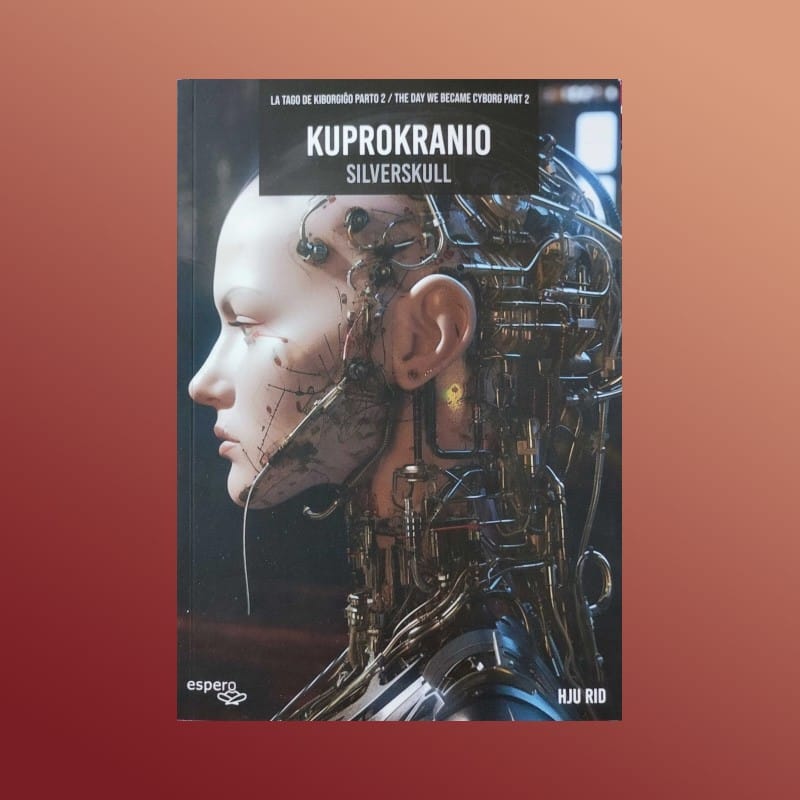The toad and eagle-owl have been talking

I'm currently reading a parallel text I got hold of from the Esperanto Association of Britain, where each page appears in both Esperanto and English, so I can scratch the sci-fi itch and see some translation intentions at the same time:

Kuprokranio / Silverskull
A collection of thought-provoking sci-fi stories by the Scottish author Hugh Reid, Kuprokranio/Silverskull is a cyberpunk follow-up to his earlier La Tago de Kiborgiĝo/The Day We Became Cyborg.
I came across a neat way of expressing what I think is the present perfect continuous tense in Esperanto. Here's the English:
"Seonaid and I have been talking"
The present perfect continuous tense describes an action that started in the past and is continuing in the present, with emphasis on the continuous/repeated nature of the action.
the badgers have been building a fort
the cat has been uneating her lunch
In Esperanto, the simple past verb ending -is covers a multitude of tenses that you must explicitly decide between when using English, because generally in Esperanto it doesn't matter unless you want to call attention to e.g. the state of completion of an action.
For example, take a look at what the simple past of paroli "to talk/speak" can stretch to:
ili parolis
they talked
they were talking
they have talked
they had talked
they have been talking
they had been talking
You can do various things to emphasis which one you mean if it's important that someone understands when/if the talking was completed or is an ongoing thing.
For example, using a helper word jam "already" we can imply that the action finished already:
ili jam parolis
they have/had already talked
Or we could resort to using one of the esti "to be" + participle combinations to make super explicit the timing and completion of the action. Hold on tight:
ili estis parolanta
the were talking - in the past (estis) the action was ongoing (-anta)
ili estas parolinta
they have talked - in the present (estas), the action is now finished (-inta)
ili estis parolinta
they had talked - in the past (estis) the action was already finished (-inta)
... But we try to avoid assaulting the senses with those unnecessarily.
The neat little example of the present perfect continuous in Silverskull was this:
Seonaid kaj mi paroladis
Seonaid and I have been talking
It cleverly retains the use of the simple past ending -is, but ropes in the -ad suffix for making continual/habitual/repeated actions:
uzi, uzadi
to use, to use continually / habitually
babili, babilado
to chat, chatter / chatting
If you can't do the time, don't do the rhyme:
la bufo kaj la gufo paroladis pri la lufo
the toad and the eagle-owl have been talking about the loofah

